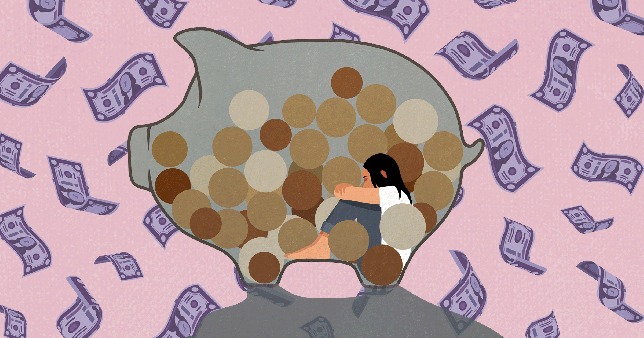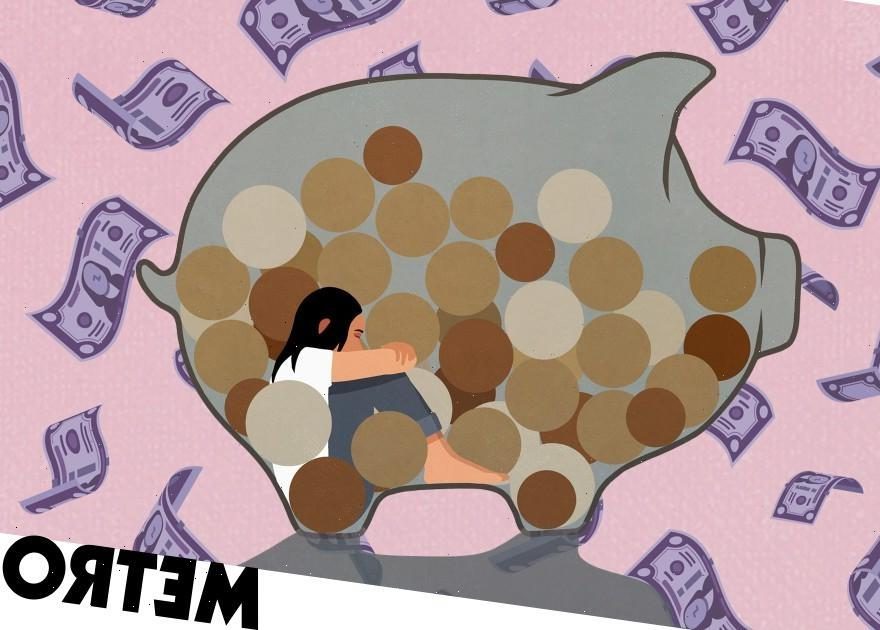
Look, with the cost of living rising and our budgets feeling increasingly tight, we’re not going to suggest that a few money management tricks are all you need to sort out your finances.
The fact of the matter is that things are more expensive, from our rent to our food, and times are tough. That’s not your fault, and a fix is needed from higher up.
But while we wait for the government to remedy things, what can we do to lessen the stress?
While changing some of our money habits isn’t a magic fix for financial issues, it can certainly help.
Before you can start handling your money better, though, you’ll need to know where you’re going wrong.
So, we asked the money experts at My Favourite Voucher Codes to break down some of the most common mistakes people make… and tell us how to quit them.
Julian House, managing director of the site, said: ‘Most financial mistakes are just bad habits that normalise over time.
‘Something as simple as throwing away receipts leads to not tracking your spendings, which makes you unable to budget properly.
‘With the cost of living crisis, making smart financial decisions has become so important and there’s never been a better time to snap out of these bad habits and stop the mistakes before they happen.’
Which of these mistakes are you making?
Constantly dipping into savings
You might put away a bunch of money each month with the best of intentions, but that doesn’t really matter if you just end up crawling back to your savings account to withdraw more cash, over and over again.
Change the way you view your savings, and perhaps change the initial amount you put into that pocket every month to be more realistic about your budget.
Savings are there to be, well, saved, for a future goal or as a safety net. Don’t wreck that by using that hard-earned cash for every whim.
‘Dipping into any type of saving is a sign of serious financial mismanagement,’ say the experts. ‘You should have multiple fail-safes in place to stop it before it even happens.

You don’t have an emergency fund
‘The best way to avoid a personal finance crisis like an unexpected expense forcing you into debt is setting aside an emergency fund,’ say the My Favourite Voucher Codes team. ‘An emergency fund typically contains three to six months of expenses in one place, preferably in an easy-access cash account.’
Failing to budget
We know it sounds terribly boring and grown-up, but you really do need a budget. Spending willy-nilly, refusing to check your bank balance, and just hoping you’ll have enough money for what you need – that’s a recipe for disaster.
Set aside some time to work out exactly where your money goes. Make a note of your income, any regular expenses (rent, bills, student loan repayments), and work out how much money you can actually dedicate to different things, like fun travel or fancy meals out.
Then track your spending. Stay on top of it. No more pretending your bank account doesn’t exist and thus is not something you need to worry about.
Accumulating debt
Debt can quickly snowball into a full-fledged financial crisis, especially if try to acquire extra money through buy now and pay later schemes and personal loans.
If you find yourself in a situation where accumulating an amount of debt is unavoidable, proactively plan exactly how you will be able to pay it back. If you own a credit card, always make sure to repay it each month.

Staying loyal to expensive brands
Stop spending money on things that make no real difference to your life. Do you really need the fanciest tomato ketchup around? Or could you make do with a supermarket value version?
Try down-shifting. This is where for each product or service you buy, you try the version that’s one level cheaper. See if you like it, and if so, keep buying it. Next time you need a restock, go another level cheaper. If you hate it, that’s fine; you can always go back up a level. But if you like it, you’re saving money with no dent to your happiness.
‘If you can get the same product or service from a different brand for a fraction of the price, it’s a no-brainer,’ say the experts.
‘Energy, insurance, phones prices keep going up and up and up. You’re doing yourself a disservice if you’re not regularly looking around at other options in favour of staying loyal to an expensive brand.’
Keeping unnecessary subscriptions
Are you letting money fly out of your account every month, without you really noticing?
Do a subscriptions audit: Compare how regularly you use the service to its cost and make a judgement call on if it’s really worth the price for you.

Stretching yourself thin on mortgage payments
The My Favourite Voucher Codes team say: ‘Although mortgage payments are cheaper than rent prices on average right now (due to the decrease in interest rates), any property hunting should always fit your budget rather than making your budget fit your property hunting ambitions.
‘Stretching yourself thin on mortgage payments is a one-way ticket to your quality of living dropping, as you’ll be forced to make unwanted sacrifices elsewhere.’
Buying a flashy new car
‘There’s nothing to say that, if you have the disposable income available, that you shouldn’t buy your dream car,’ say the experts. ‘However, cars are a deprecating asset. You could buy a brand new supercar, drive 10 miles home, drive 10 miles back to the dealership the next day and only be able to sell it for a fraction of the price.
‘You shouldn’t prioritise buying a flashy new car over the likes of building your savings, entering the property ladder or investing in education.’
If you want more tips and tricks on saving money, as well as chat about cash and alerts on deals and discounts, join our Facebook Group, Money Pot.
Do you have a story to share?
Get in touch by emailing [email protected].
Source: Read Full Article
